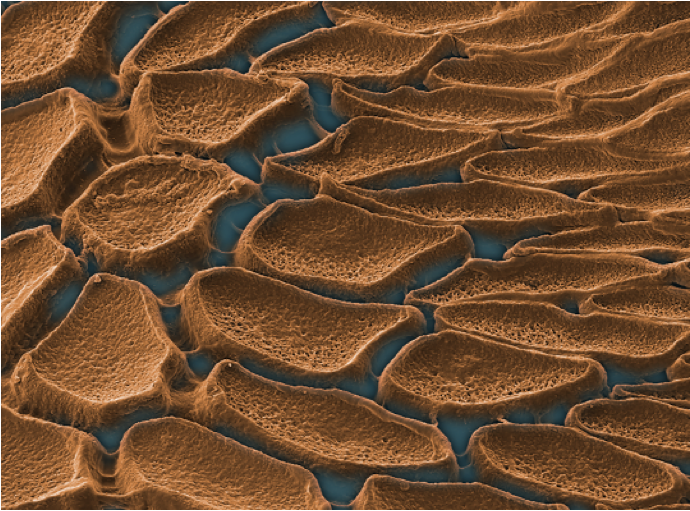 Squids have teethed structures inside their suckers that they use to latch on their prey. These teeth are made of structural proteins that form a reversibly crosslinked network with outstanding mechanical properties.
Squids have teethed structures inside their suckers that they use to latch on their prey. These teeth are made of structural proteins that form a reversibly crosslinked network with outstanding mechanical properties.
In Helft, et al., Integrative and Comparative Biology (2024), the team investigated changes in nano/microstructure and mechanical properties with temperature, revealing a reversible softening due to a glass transition at mild temperatures (35 °C). This thermomechanical transition relies in dense hydrogen-bonding interactions that stabilize the protein network, and provide mechanical and self-healing properties that surpass many synthetic polymers.
Understanding the structure-property relationships that govern this biological material will guide the molecular design of dynamic polymer networks in IRG2 with reversible thermomechanical properties and crosslinking mechanisms.
This project has been co-authored by 2 undergraduate students and 2 PhD students in MSE, MACRO, and Biophysics at UM.